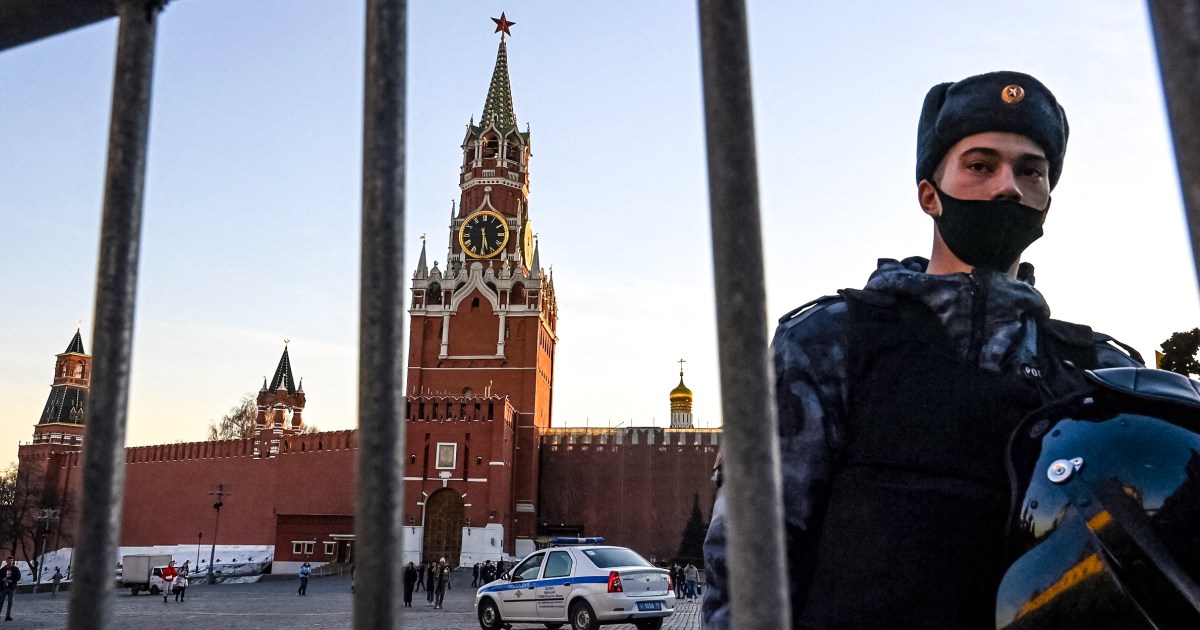
Russia and its allies have been using their media platforms to target Spanish speakers with propaganda that is inaccurate or an incomplete picture of the invasion of Ukraine, worrying some over the impact it can have on U.S. Latinos and across Latin America.
While these outlets broadcast in Latin America, their reach on social media platforms such as Twitter and YouTube is more extensive.
Actualidad RT and Sputnik both have Spanish-language websites. One of the top stories Wednesday on the Russia-owned broadcast channel Actualidad RT was a conspiracy theory that Russia has floated about the United States funding a biological weapons laboratory in Ukraine. Actualidad RT reported that China asked the U.S. to reveal details of the laboratory. The U.S. has said that these allegations are false. Similar conspiracies about secret laboratories have also spread in some far-right circles.
Actualidad RT, as well as Sputnik Mundo, have led in the avalanche of social media posts about the situation regarding people or places in Russia and Ukraine.
Experts warned that Russia had been seeding misinformation about Ukraine across the internet in the lead-up to its invasion, though its English-language efforts have generally been drowned out by Western media. The same has happened in Spanish and the amount of posts have shot up since the invasion.
The social media posts had more than 1.5 million engagements on a 10-day span between Feb. 23 and March 2, according to an analysis by Omelas, a Washington, D.C.-based firm that has been tracking propaganda in Spanish for the past five years.
The channels recently asked their Twitter followers to also follow their accounts on the Russian social media platform VK, as well as on Telegram.
Actualidad RT has come a long way since its inception in 2009. It gets more total digital video views than any other Spanish language channel, according to Omelas’ research. It has more than 18 million followers on Facebook and almost 6 million on its YouTube channel. It describes itself as being a “major source of alternative information in the West.” Although its headquarters is in Moscow, many of its news anchors and correspondents are from Latin America.
Ben Dubow, chief technology officer at Omelas, told NBC News that since January, there’s been a narrative on Actualidad. “Ukraine is run by neo-Nazis who are about to commit genocide against the ethnic Russians and it’s the duty of Russia to preserve world peace and to counterbalance the West that is so feckless,” he said about Actualidad.
“They’re not targeting American Spanish speakers because they want to get the truth out,” he said. “They’re targeting them because they want to sow discord, and they want to create chaos.”
Watchdog groups like Media Matters have also been looking into the proliferation of Actualidad RT’s posts. They pointed out one Facebook post, which painted Russia and Ukraine as equal aggressors, which has gathered 132,000 reactions and 2.7 million views.
Jacobo Licona, the disinformation research lead at Equis Labs, a research and polling firm, said the interactions on Actualidad RT’s social media accounts are higher than those for its accounts in English. They have also gone up since the invasion.
From Jan. 1 to Jan. 31, Actualidad RT’s average daily interactions on Facebook were 52,000. And from March 1 to March 6, it shot up to 130,000 average daily interactions.
“There is a lot of content that is spreading in Latin America that reaches Spanish speakers in the United States, and vice versa,” Licona said.
He said his biggest concern is that Latinos are more susceptible to this kind of content because of the amount of time they spend on YouTube and other social media, and also because of how social media platforms are moderating content in Spanish.
Kremlin-funded outlets account for the vast majority of social media posts that are giving the Russian perspective. But other Spanish-language outlets such as HispanTV, funded by Iran, and CGTN, funded by China, have also been defending Russia in their Spanish-language coverage of the invasion, in what appears to be an effort to erode support for Ukraine. Venezuelan-owned outlets VTV and teleSUR have done so, as well.
Recent reporting on teleSur said “nationalist forces” in Ukraine are blocking Ukranians from evacuating. CGTN reported that the Russian state news agency, Tass, said the Russian defense minister said he has proof the U.S. financed a military biological program in Ukraine.
With a quick glance at some of the websites’ articles, the pro-Russian slant may not always be obvious. At times, nuances are deeper in the stories. Unless one is well-versed in the unfolding events, it could be tricky to decipher what is true, exaggerated or flat-out false, according to experts.
“What makes propaganda effective is that, by and large, it’s true. They might frame it differently, but by and large, they have something to fall back on to claim what they’re saying is real,” Dubow said.
The outlets post mostly on Twitter and YouTube. They have Facebook accounts, as well, but don’t get as many engagements there.
HispanTV, from Iran, has dedicated channels for different countries, such as Chile and Venezuela. It was a project of Iran’s former President Mahmoud Ahmadinejad, who had a close relationship with Venezuela’s late leader Hugo Chavez. The idea was to counter mainstream narratives in Spanish. On social media, HispanTV is more prominent on Russian social media platforms VK and OK.ru than on Twitter.
Venezuelan teleSur was launched in 2005 under the government of Chavez as a socialist alternative to CNN. CGTN was launched in 2007.
But all these outlets have different goals. Dubow said HispanTV is more focused on promoting a positive image of Iran, teleSur is about promoting leftist movements, and in the case of Kremlin-controlled media, it’s about creating chaos.
“And that’s really their approach to information. It’s entirely an expression of power,” Dubow said referring to Russian state media. “It’s not an exercise in truth finding … their goal is just to aggravate tensions within a country, to try to push civil conflict as much as possible, try to prevent any country that isn’t allied with them from having any sense of solidarity, any sense of shared mission that is necessary to a country’s development.”
(Note: The author worked at RT’s bureau in Miami from 2010 to 2012).
Follow NBC Latino on Facebook, Twitter and Instagram.
Source: | This article originally belongs to Nbcnews.com









